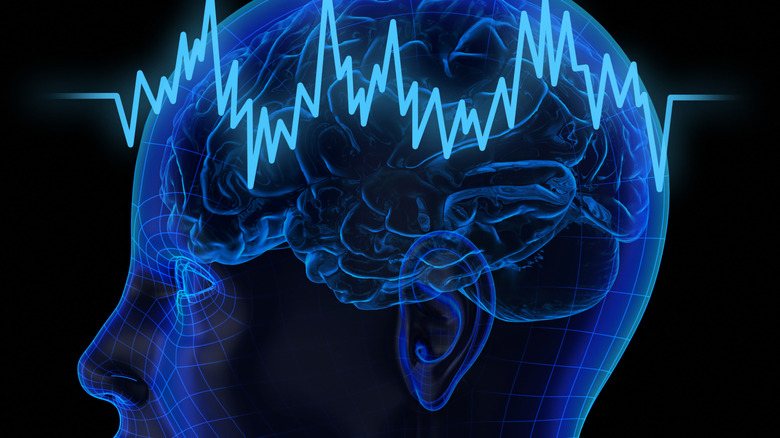Researchers Suggest This Is Why Patients On A Ventilator May Take Longer To Recover
For hospitalized patients on life support, the time it takes a patient to wake up can sometimes be an indicator as to whether or not they will make a full recovery. For example, the decision to take a cardiac patient off life support may partially depend on whether or not the individual regains consciousness within a two-week period, reports the Cornell Chronicle. For COVID-19 patients, however, a new study now suggests that those receiving ventilator support may take longer to wake up after the fact, but it shouldn't be taken as a sign that full recovery isn't still possible.
In a study published this week in The Proceedings of the National Academy of Sciences, researchers looked at the similarities shared by patients diagnosed with severe cases of COVID-19 who had no prior history of brain damage, but who experienced delays in regaining consciousness for weeks or even months. "People have been liberated from anesthesia after surviving Covid, and they're not waking up," said Dr. Nicholas Schiff, a neurologist at Weill Cornell Medicine and study co-senior author, to The New York Times. Interestingly, the research findings indicated there may be a protective response triggered in the brain similar to that of hibernating turtles which may explain these recovery patterns in patients.
Ventilated patients and turtles share similar brain activity
The researchers explain that a species of turtle, known as painted turtles, spends the winter months submerged in ice, reports HealthDay. In order to enter into a state of oxygen deprivation, these reptiles prompt the release of GABA in the brain, which places the neurons in a dormant state to limit the frequency of electrical bursts (via The New York Times). The researchers noted that COVID-19 patients on life support appear to exhibit similar brain wave patterns. Triggered by sedatives resembling GABA, patient neuron activity slows, reducing the amount of oxygen needed for survival.
Commenting on the significance of the research, professor of anesthesia at Harvard Medical School and study co-author Dr. Emery Brown, tells HealthDay, "These observations may offer new insights into the mechanisms of how certain anesthetics produce unconsciousness and new approaches for ICU sedation and for fostering recovery from disorders of consciousness."
However, some experts point out that there is still much that remains unknown about this animal behavior. "I think it's an intriguing analogy, definitely," Amanda Bundgaard, a postdoctoral researcher at the University of Cologne in Germany, tells The New York Times. Bundgaard, who specializes in turtle brains, goes on to point out, "One thing that maybe is a little bit problematic is that we don't know how turtles wake up again from this."
While more research is still needed, the study team suggests that doctors should take this research into account before determining the likelihood of a COVID patient's recovery (per HealthDay).


